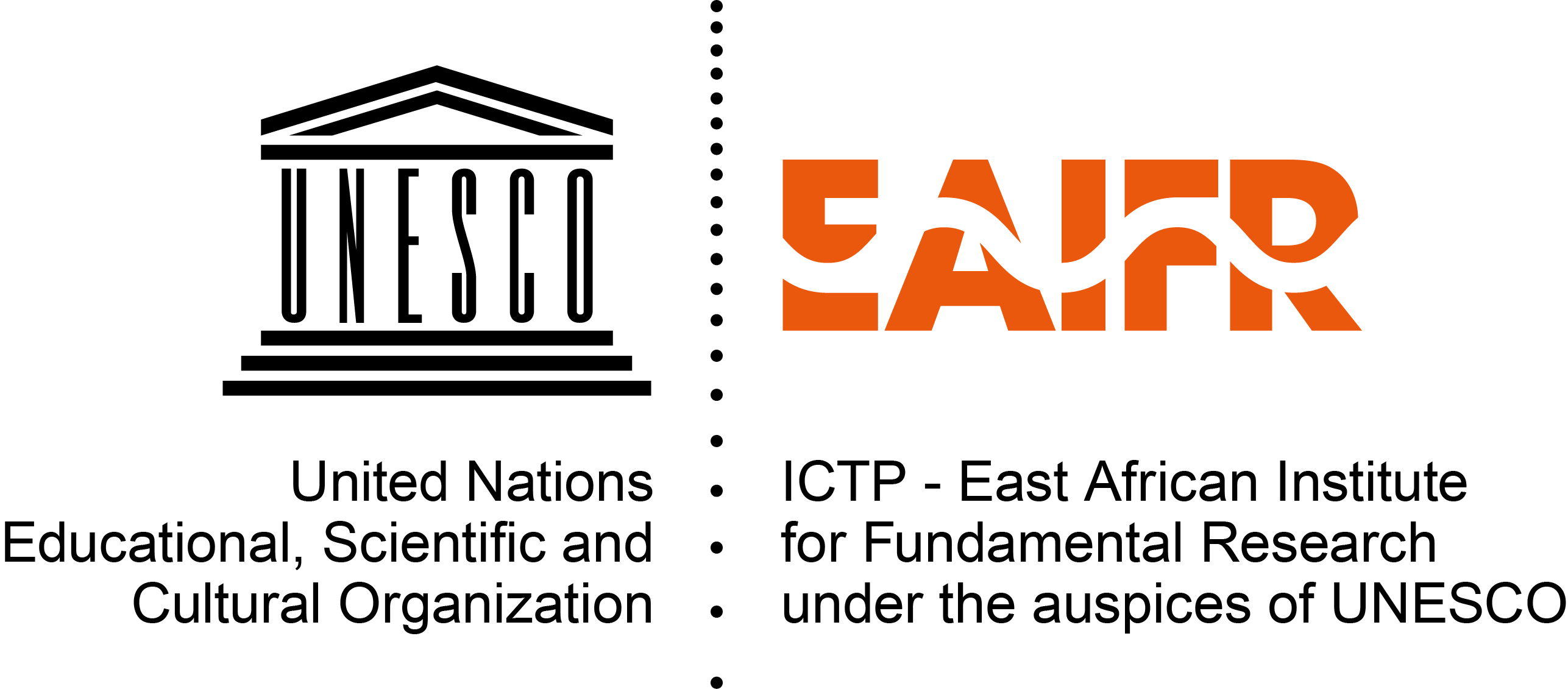ICTP-East African Institute for Fundamental Research
KIST2 Building CST
Nyarugenge Campus
University of Rwanda
Kigali, Rwanda
CMSP Webinar - Venkat Kapil
Dr Venkat Kapil (Cambridge University) will present a seminar on first principles description of the phase diagram of monolayer nanoconfined water.
- Speaker: Dr Venkat Kapil (Cambridge University, UK)
- Date: Thursday 24 November, 2022
- Time: 16:00 – 17:00 HRS (GMT+2)
- Venue: Online

Title: The first-principles phase diagram of monolayer nanoconfined water.
Abstract: Water in nanoscale cavities is ubiquitous and of central importance to everyday phenomena in geology and biology, and at the heart of current and future technologies in nanoscience. A molecular-level picture of the structure and dynamics of nanoconfined water is a prerequisite to understanding and controlling the behavior of water under confinement. Here we explore a monolayer of water confined within a graphene-like channel using a framework that combines developments in high-level electronic structure theory, machine learning, and statistical sampling [1]. This approach enables a treatment of nanoconfined water at unprecedented accuracy. We find that monolayer water exhibits surprisingly rich and diverse phase behavior that is highly sensitive to temperature and the van der Waals pressure acting within the nanochannel. Monolayer water exhibits numerous molecular ice phases with melting temperatures that vary by over 400 degrees in a non-monotonic manner with pressure. In addition, we predict two unexpected phases: a ”hexatic-like” phase, which is an intermediate be- tween a solid and a liquid, and a superionic phase with a high electrical conductivity exceeding that of battery materials. Our work suggests that nanoconfinement could be a promising route towards superionic behavior at easily accessible conditions.
[1] Venkat Kapil, Christoph Schran, Andrea Zen, Ji Chen, Chris J. Pickard, Angelos Michaelides. “The First-Principles Phase Diagram of Monolayer Nanoconfined Water.” Nature, vol. 609, no. 7927, Sept. 2022, pp. 512–16.
[https://doi.org/10.1038/s41586-022-05036-x, https://arxiv.org/abs/2110.14569]
Keywords: Machine Learning, Statistical Mechanics, Electronic Structure, Nanoconfinement, Phase diagrams
Zoom Meeting ID: 812 9461 2487
Link: https://us02web.zoom.us/j/81294612487
Short bio: Venkat Kapil obtained an integrated 5-year M.S. in Chemistry from the Indian Institute of Technology Kanpur, India, in 2015 and a Ph.D. in Materials Science in 2020 under Michele Ceriotti at the Swiss Federal Institute of Technology Lausanne (EPFL), Switzerland. He worked, closely with the group of Prof. Angelos Michaelides, as a visiting Research Fellow at the Yusuf Hamied Department of Chemistry, University of Cambridge, until April 2022, funded by a Swiss National Science Foundation Mobility Fellowship, and is currently an Oppenheimer Research Fellow at Yusuf Hamied Department of Chemistry, University of Cambridge. In 2020, Venkat was awarded a Sydney Harvey Junior Research Fellowship at Churchill College, University of Cambridge. Venkat's research revolves around developing and applying advanced simulation techniques to simulate bulk and confined molecular materials using laws of quantum mechanics by combining high-level electronic structure, quantum statistical mechanics, and machine learning.



